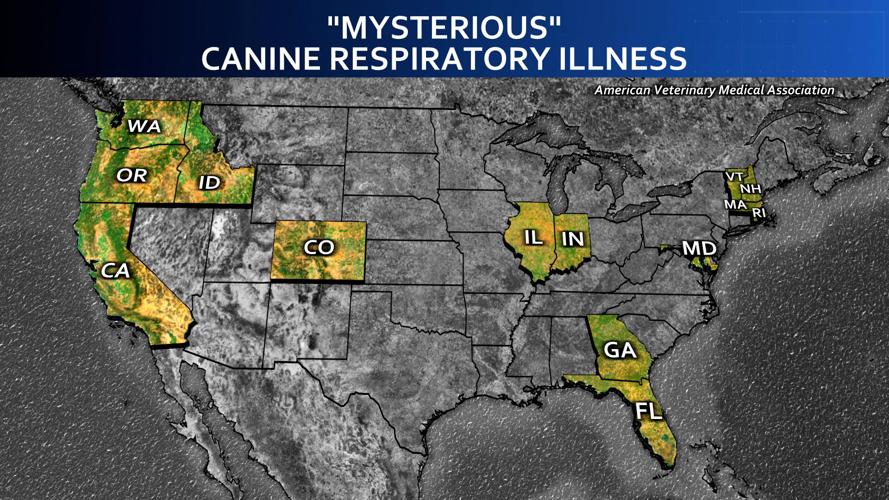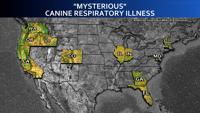SALISBURY, Md. - Rumors of a new respiratory disease may conjure traumatic flashbacks to the start of the COVID-19 pandemic.
But recent reports of a "mysterious" respiratory dog illness. are making it seem like our canine friends could be at risk.
In fact, it has been a busy year for respiratory illnesses in dogs.
"We've had a lot of upper respiratory this year. It's been a very bad year for upper respiratory in dogs and in cats," said Kimberly Nock, executive director of the Wicomico County Humane Society.
Dogs - like humans - catch colds and the like as the weather turns cold. And they often catch the illness in similar ways.
"I say that a shelter is just like sending your child to day care," Nock said. "When one child gets it, pretty much they all get it."
This supposed "mysterious" respiratory illness has reportedly been found in 14 states - including Maryland.
But veterinary experts are saying there is no evidence of any dangerous new illness.
"This isn't an new thing. There's no new pathogen, no new evidence that there is an actual, new disease out there," said Dr. Shari Rayne of the Winter Place Animal Hospital.
Dr. Rayne says unofficial sources of information can cause unnecessary concern and panic in dog moms and dads.
"It happens, and then people start talking about it, and social media is such a thing right now, has been for a while now, it travels like wildfire, and then everyone thinks they're seeing the same thing," Rayne said.
Upper respiratory illnesses in dogs normally come with symptoms such as coughing or sneezing, but as long as your pet remains energetic and alert there is no cause for serious concern.
But, if your dog starts showing signs of lethargy, fever, or loss of appetite, that could be a sign of a lower respiratory infection, which could lead to serious complications such as pneumonia. In this situation, visit a veterinarian immediately.
So if you're worried about something like COVID for dogs, there is no need to worry.
"There's been no proof that there is a new disease out there. I think the major concern should be to vaccinate for the ones that we already know about and can prevent," Rayne said.
Dr. Rayne also urged pet owners to follow only credible organizations such as the American Veterinary Medicine Association for accurate and up-to-date information about any new or existing animal diseases.





